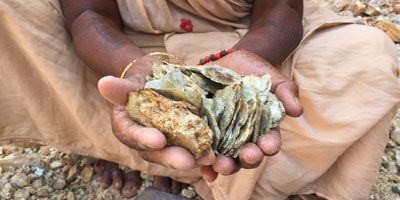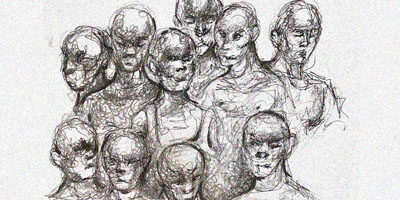Growing up in Winnipeg, Dexter X felt that the people who created change throughout history, such as Nelson Mandela and Martin Luther King, were just historical abstractions. Myths even.
“It took a leap for me to realize those were real human beings and real social problems,” he said. “They made an effort and there were real changes.”
Once he realized that this kind of change was still taking place, he made the decision to devote himself to political activism. It was difficult for Dexter to pinpoint the moment he got involved with advocacy because as he describes it, activism is more than just an extra-curricular activity – it’s a way of life.
While speaking with Dexter it was almost impossible to keep track of how many groups he has been involved with. The list includes Hands Off Mother Earth, Fruit Nut Bombs, Act Up, and Ruckus, to name a few. Dexter is a film editor by trade, but outside workplace he has protested at events in Quebec City, Copenhagen, parts of Italy and elsewhere around the world. He has also DJ’d for a 30,000 person demonstration, scaled buildings to hang banners (once in 40˚ below), been arrested over two dozen times and been the victim of police brutality.
A pacifist, he frequently quotes Ghandi, emphasizing that everyone should life by his ahimsa maxim – the ethic of non-violence.

“The basic rule should be ‘do no harm,'” he said. “We should cooperate with each other and try and help each other actualize our potential as human beings on this planet, as creative and special people.”
Dexter acknowledges that not all activists live by the same principles, however. When asked if activists ever violate the rule of non-violence he replied, “Oh, all the time.”
Unfortunately, that is not the only inconsistency within the activist community. For instance, Dexter points out that there is a disagreement over the meaning of “direct action”. Most people consider the term to be about giant publicity stunts, where the goal is to get a message to a decision maker, Dexter said, but he doesn’t see it that way. For him, the definition of direct action is more in line with social justice leader Judi Bari’s concept of physical intervention at the point of production.
“It’s to be acting without an intermediary,” he said, “so it’s direct. And it’s acting, not discussing.”
Another discrepancy Dexter identified in the progressive movement is that activist groups and non-governmental organizations often have conflicting aims and practices.

“It’s one of the reasons we don’t have as many comprehensive successes, Certain organizations have these contradictions within them. Sexist organizations, racist organizations, authoritarian organizations. It’s as big a problem as any other.”
For Dexter, most global issues are fundamentally about power and poverty, and are linked to a lack of democracy and an unjust economic system. This is why so many people speak out against established norms – they feel they don’t have a say in fundamental aspects of their lives. And that is why Toronto had so many protestors on its streets during G8 and G20 Summits.
Humans are not valued equally, he said, and until there is proportional decision-making power and a political voice given to all people, society cannot move forward.
When taking part in a cause, Dexter believes that the most important thing is to find out who is suffering the most and to ask them what they think needs to be done. The process should be very ground – up. The next step is to find out who controls decision making.
“In any given situation you have to research and figure out what the interests are, Who the beneficiaries are, what’s going on behind the scenes, where are their vulnerabilities, and where they are susceptible.”
The organization Dexter currently works with, The Ruckus Society, focuses on is how to make sure organizations convey their message in the most effective way. Ruckus thinks of itself as a toolbox of experience, training, and skills where organizations and individuals can find non-violent direct action tools to help advance their respective campaigns.
Dexter teaches climbing, blockades, banner hanging, media communications and a new stream called art and activism. He has also been a part of a shift within the society from a focus on forest conservation, in league with Greenpeace and the Rainforest Action Network, to fighting for ecological justice on a larger scale, particularly in communities that are the most undermined.
Ruckus has been very busy as of late. In the month of June 2010 alone Ruckus was involved in nine trainings and actions, including facilitating and participating in the U.S. Social Forum held in Detroit. But Dexter will admit that Ruckus doesn’t pay the rent.
When asked if he is bothered by the slow progress of activism, he said, “I don’t find the necessity to fight for something frustrating.” He add that “it’s not the first thing one would want to do with their life.”
So why go on? Dexter referred to Frederick Douglass statement that “power concedes nothing without a demand.”
“To be concerned about people’s suffering, or animals suffering, or the state of the planet, is to find it natural to do something about it. Nothing is ever won without a struggle.”






